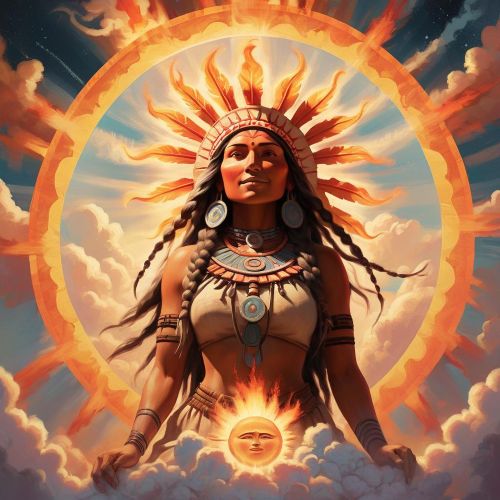Chickasaw Mythology
Chickasaw mythology is a vital part of the cultural heritage of the Chickasaw people, who originally lived in the southeastern United States before their forced relocation during the Trail of Tears. Rooted in oral traditions, Chickasaw myths preserve ancient wisdom about creation, the spirit world, and humanity’s relationship with nature. These stories were shared by elders around fires and in community gatherings, serving as moral guides, cultural memory, and spiritual lessons. Like many Indigenous mythologies, Chickasaw mythology emphasizes interconnectedness, showing that humans, animals, and the land are bound together in a sacred balance that must be respected.
One of the most significant stories in Chickasaw mythology is the migration legend. According to tradition, the Chickasaw and Choctaw were once one people who traveled eastward under the guidance of a sacred pole. Each day, the pole was planted into the ground, and its direction determined their journey. Eventually, the people divided, with one group becoming the Chickasaw and the other the Choctaw. This story not only explains the origin of the Chickasaw nation but also symbolizes identity, resilience, and the sacred connection to the land. Such myths reinforced unity and cultural pride while teaching that survival depended on strength, cooperation, and adaptability.
Chickasaw mythology also includes stories of tricksters, spirits, and natural forces that influence human life. Trickster figures, often humorous and mischievous, serve as moral teachers by showing the consequences of pride, greed, or carelessness. At the same time, stories of animals, stars, and natural phenomena explain the world around them, reinforcing the idea that every element of nature has spiritual significance. Ceremonies and dances rooted in these myths helped maintain harmony with the spiritual world while strengthening bonds within the community. Through storytelling, the Chickasaw passed on both practical wisdom and spiritual knowledge to future generations.
Today, Chickasaw mythology continues to thrive as part of the community’s cultural preservation efforts. The Chickasaw Nation actively supports the teaching of traditional stories, language, and ceremonies to ensure that younger generations remain connected to their heritage. Modern writers, artists, and filmmakers are also reinterpreting Chickasaw myths, sharing them with broader audiences while keeping their sacred meanings intact. For the Chickasaw people, mythology is not only about the past but a living guide to resilience, identity, and cultural pride. Exploring Chickasaw mythology provides both a glimpse into fascinating legends and an enduring reminder of the strength and wisdom of Indigenous traditions.


